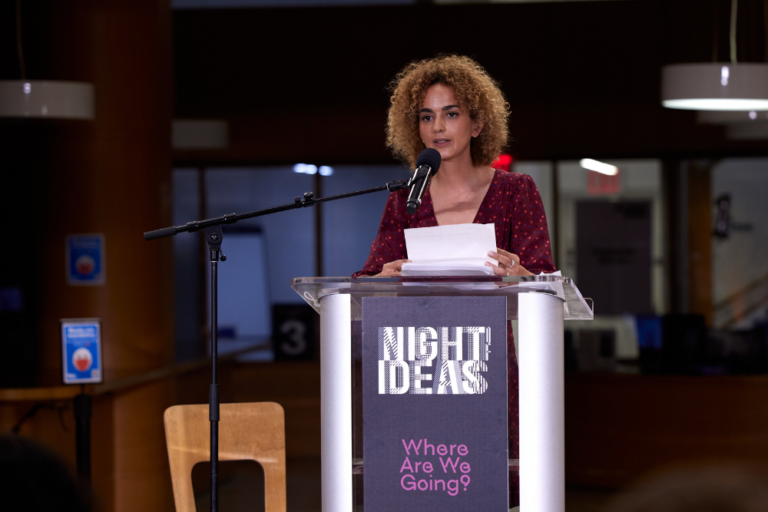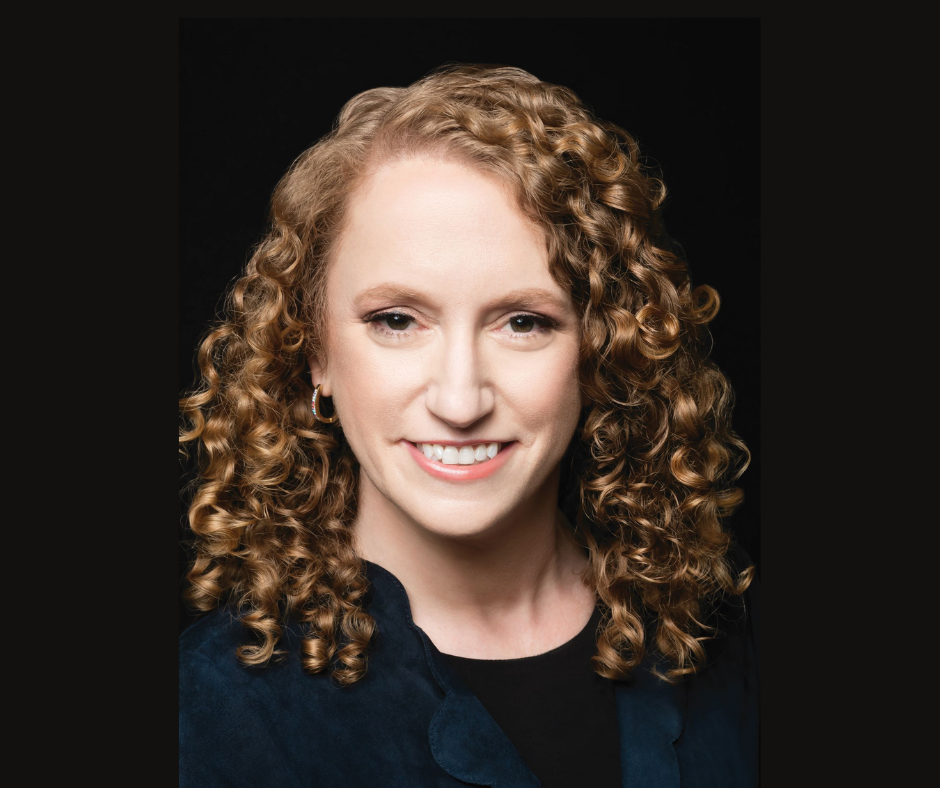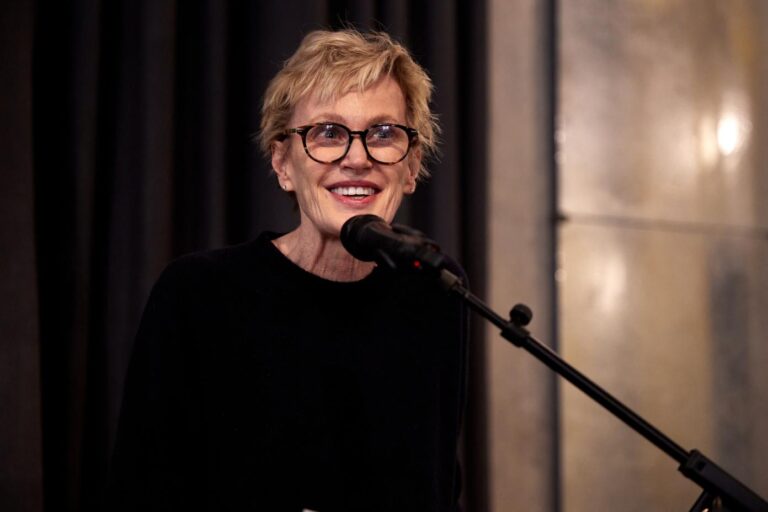
Suzanne Nossel – Chief Executive Officer at PEN America

Suzanne Nossel
By Louise Quantin and Zélie Perpignaa
“I have become deeply concerned in recent years about the risk that a rising generation is losing faith in the principles of free speech.” Suzanne Nossel is the CEO of PEN America, which seeks to address equity and anti-racism issues while also protecting and promoting free speech.
Founded in 1922, PEN America is a non-profit organization that defends freedom of expression and human rights through literature. With more than 7,200 members (including writers, journalists, publishers, poets, agents, translators, etc.), PEN America is the largest of the 145 entities that make up the PEN International network around the world. Head of the institution since 2013, Suzanne Nossel, author of Dare to Speak: Defending Free Speech for All–a book that has been celebrated since its publication in July 2020–is a major figure in the fight for freedom of expression in the United States and around the world.
PEN America stands at the intersection between literature and the defense of free speech in the United States and around the world. Could you please say a few words about PEN America’s mission? In your opinion, is the figure of the writer, unrestrained by conventions and therefore free to create, the best representative of what you defend?
I think of PEN America as an organization made up primarily of writers, but that defends free expression for all, recognizing that it is not enough for writers to be free to voice their viewpoints if others lack that same liberty. I would say that the defense of imperiled writers is at the heart of our mission; when there is a case of a novelist, essayist, playwright or poet who is persecuted or imprisoned because of something they have written, we want that individual to feel the support of PEN America and the broader PEN network and to know they are not alone. We hope that solidarity also fortifies the will of other writers around the world who recognize that if they take risks and get into trouble for it, they will have a worldwide network by their side. We reach beyond that to tackle issues of press freedom, free speech on university campuses, the thorny issues concerning the governance of speech in the digital realm and a range of other topics. Wherever possible, we seek to elevate the voice of the writer as a potent spokesperson for our mission and to use literature and stories as a catalyst to bring about understanding across differences.
On June 7, 2020, Harper’s Magazine published an op-ed, signed by 153 key figures from the world of culture, about freedom of expression and cancel culture. Several months later, these questions remain at the heart of American and international news. Do you have the impression that the concept of freedom of expression is evolving? In which way?
Freedom of expression is under pressure from multiple sides. The manifest harms of some forms of online content – including harassment, bullying and disinformation – has led to serious questions about how far we want digital platforms to go in regulating speech and demands that private companies develop comprehensive approaches to arbitrating online content. Here in the US, under the Trump administration, we witnessed an uncorking of hateful speech that correlated with a sharp rise in hate crimes on the basis of gender, sexual orientation, religion and race. At the same time, the resident and his supporters proclaimed themselves the champions of free speech and the First Amendment, deflecting criticism on the basis that even deeply offensive remarks are protected speech under the US Constitution. This understandably led people to question the value and important of free speech, since it seemed to be invoked most often as a smokescreen for hatred. The sense that, at a national level, our society had become an enabling environment for hateful speech sparked a backlash whereby there are intensified efforts to police speech in smaller spaces, be that a classroom, a Twitter feed, or the pages of a magazine or newspaper. While some measure of mediation of speech is often warranted to ensure that environments like a workplace or college campus are welcoming and inclusive for all, that constructive impulse can sometimes cross over into a censorious intolerance for dissenting views.
You welcome not only recognized writers as members, such as Paul Auster, Don De Lillo, and Salman Rushdie, but also young emerging authors, such as Morgan Jerkins, Alice Sola Kim, and Lisa Ko. Why are these new voices needed in moving the debate on freedom of expression forward?
I have become deeply concerned in recent years about the risk that a rising generation is losing faith in the principles of free speech because of the way they have witnessed the concept being invoked, often as a shield for those who are determined to provoke or offend. I write about this in my book, Dare to Speak: Defending Free Speech for All. We also have a program at PEN America that is focused on free speech and education, including presenting talks and workshops at universities and holding institutes that introduce students to the theory and practice of defending free speech. It is extremely important for young people to hear from writers whom they respect and who believe in the value of free speech and recognize that concerns of equity and anti-racism can be addressed through approaches that protect and promote free speech. If free speech is seen as a cause limited to older, white writers and thinkers it will reinforce the skepticism that young people have about whether it’s possible to build the kind of inclusive, encompassing society that they envision while upholding firm protections for free speech. We find that young, emerging writers are among the most powerful ambassadors for free speech and that many can speak from personal experience about how free speech protections have enabled their careers or helped make space for them to project their viewpoints.
The PEN America Literary Awards recognize a wide variety of literary productions each year. How do you make your selection?
Our literary award winners are selected by judging panels made up of writers, editors and – in some cases – translators, journalists, publishers and others who read through reams of submissions each year. The staff and Trustees of PEN America have no role in selecting our book award and career achievement winners. We do play an important role in assembling distinguished and diverse panels of judges and are very proud of how those nominations have built our awards program into one that is recognized for celebrating a wide breadth of literary talent. Each award has a set of criteria, and these are provided to the judges as the basis of their selections. The panels then deliberate. Sometimes there are impasses and differences of opinions among the judges, and we help work those through to arrive at a result that all participants can support.
Although the United States translates few foreign books, PEN America is particularly committed to these matters, especially with its various awards and the organization of the World Voices Festival. What place do you give to foreign literature?
We have always believed in the power of translation to unleash the force of literature as a catalyst for understanding across ideological, political and geographic divides. Distinct from other artistic media, such as film or visual art, literature is unique in that it places the audience inside the head of characters different from themselves, a degree of empathy few other media can produce. Effective literature makes it possible for individuals to understand the fears, aspirations and motivations of individuals who may be entirely unlike themselves. As technology makes the world smaller and dictates that decisions made in Silicon Valley or Shanghai can reverberate around the globe, it becomes even more important to bridge the gulfs of culture, language and experience that separate us. We have seen so many examples of novels and plays that have transformed our understanding of other cultures. We celebrate literature in translation through our PEN World Voices Festival, year-round public events and programs focused on translation, translation grants and awards, and an active translation committee that supports and unifies the world of literary translators.
Suzanne Nossel is Chief Executive Officer at PEN America and author of Dare to Speak: Defending Free Speech for All. Prior to joining PEN America, she served as the Chief Operating Officer of Human Rights Watch and as Executive Director of Amnesty International USA. She has served in the Obama Administration as Deputy Assistant Secretary of State for International Organizations, leading US engagement in the UN and multilateral institutions on human right issues, and in the Clinton Administration as Deputy to the US Ambassador for UN Management and Reform. Nossel coined the term “Smart Power,” which was the title of a 2004 article she published in Foreign Affairs Magazine and later became the theme of Secretary of State Hillary Clinton’s tenure in office. She is a featured columnist for Foreign Policy magazine and has published op-eds in The New York Times, Washington Post, and LA Times, as well as scholarly articles in Foreign Affairs, Dissent, and Democracy, among others. Nossel serves on the Board of Directors of the Tides Foundation. She is a former senior fellow at the Century Foundation, the Center for American Progress, and the Council on Foreign Relations. Nossel is a magna cum laude graduate of both Harvard College and Harvard Law School.


